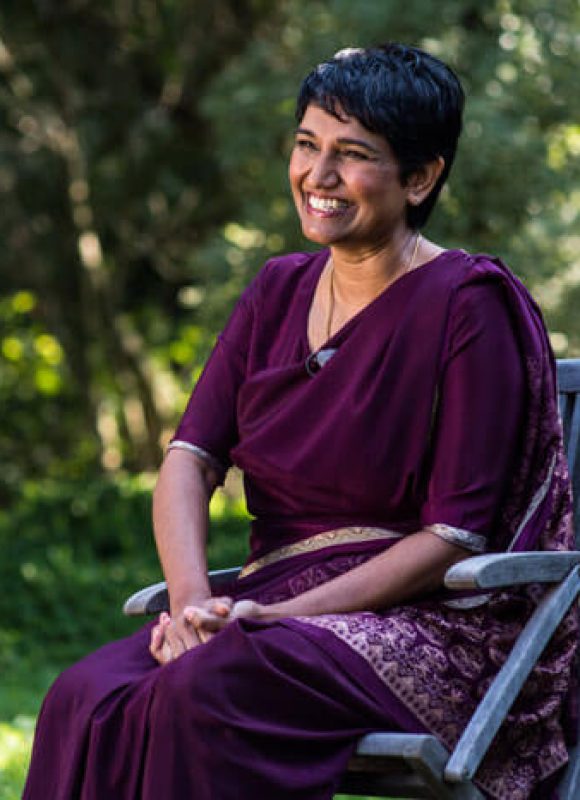PIONEER
Pregaluxmi (Pregs) Govender

Activist for women’s rights | Politician | ANC member
Born: 15 February 1960
“Apartheid’s social engineering perfected the notion of second class citizens. There can be no second class citizens in Democratic South Africa, whether on the basis of race, class, gender, sexual orientation, disability, age or geographic location. Our Constitution insists that dignity is the birth-right of every single one of us.”
Who is
Pregaluxmi (Pregs) Govender?
Human rights and gender activist, who served as a Member of Parliament (MP) for the African National Congress (ANC), as well as a Commissioner and Deputy Chairperson of the South African Human Rights Commission (SAHRC).
Professions
and Roles
Activist and author.
Best Known For
Activism for human rights and gender equality. Resigning from Parliament after being the only MP to register opposition to the arms deal.
Life highlights
- Govender taught English in Durban before joining the trade union movement in the 1980s.
- Govender served on the executive structures of the Congress of South African Trade Unions’ (COSATU) National Gender Committee and the United Democratic Front (UDF)-affiliated Natal Organisation of Women.
- During the negotiated transition, Govender managed the Women’s National Coalition. She then worked in the national Reconstruction and Development Programme (RDP) office, integrating women’s concerns into the RDP.
- As an ANC member, she was elected to the National Assembly in South Africa’s first democratic election. In the 1994 budget debates, she initiated South Africa’s gender budgeting and steered its impact on the 1998/99 National Budget.
- In 1994, she was tasked with editing South Africa’s Country Report to Beijing.
- Govender was elected Chairperson of Parliament’s Committee on Women in 1996 and served until 2002. Thereafter, Govender was the Chairperson of the Independent Panel Review of Parliament.
- After being the only MP to register opposition to the arms deal in the Defence Budget Vote, Govender resigned in 2002.
- In 2008, Parliament voted unanimously for her appointment as SAHRC Commissioner by President Kgalema Motlanthe. She began her term in January 2009 and was appointed Deputy Chairperson in October 2009. She lead the SAHRC programmes on Basic Services, the Convention on the Elimination of all Forms of Discrimination Against Women (CEDAW) and the Promotion of Access to Information Act (PAIA).
- Govender’s awards include honorary doctorates in Law and Philosophy, the first Ruth First Fellowship, and the Fulbright New Century Scholarship for the Global Empowerment of Women
IN THEIR OWN WORDS
“I want every child, every person in our world to have the freedom and the safety to walk wherever they want to walk, to be with whoever they want, and to fulfil their full human potential.
I think there are many people who instinctively understand that the inequality is wrong. It’s unjust the way in which the gender stereotypes constrain our freedom to be fully human.”
– Pregs Govender
IN THE WORDS OF OTHERS
“Govender is an icon as she embodies an individual who makes it their personal crusade to stand by what is morally just and in the best interests of society. Govender is a brave woman who has triumphed in a political and social climate that once undermined South African Indian women and she continually fights against racism, the ills of capitalism, prejudice and gender inequality.”
– Adrian Steirn, filmmaker
http://21icons.com/pregs-govender/https://www.sahrc.org.za/home/21/files/Womens%20Day%20Speech%20by%20Pregs%20Govender.pdfhttps://citizen.co.za/lifestyle/your-life-entertainment-your-life/256957/21-icons-featuring-pregs-govender/
